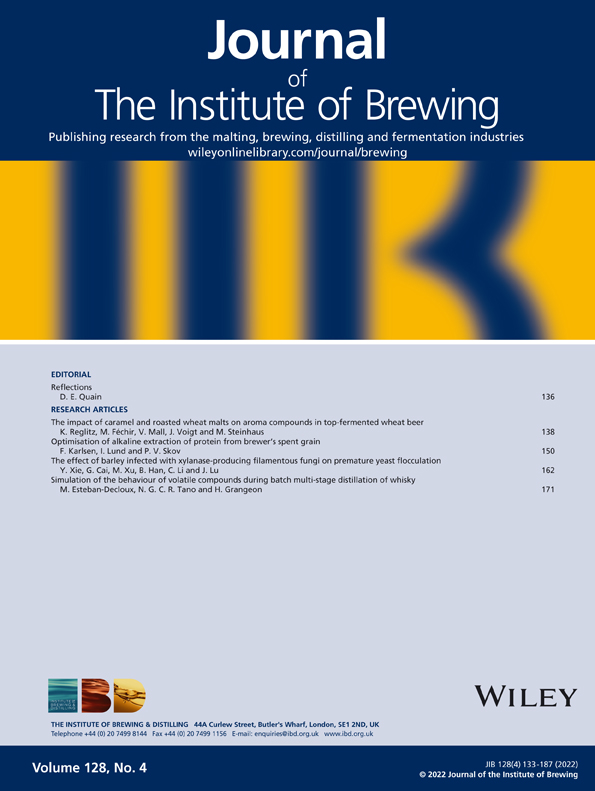EFFECT OF LIPIDS AND OXYGEN ON YEAST GROWTH AND THE BIOSYNTHESIS OF ACETOIN DURING FERMENTATION
Abstract
Brewery yeast needs traces of oxygen for the biosynthesis of unsaturated fatty acids and ergosterol. Owing to the increase in cell mass during primary fermentation the concentrations of these essential lipids decrease and thereby affect the physiological condition of the yeast. When the sterol concentration of whole cells has decreased to 0.2 to 0.3 mg per 100 mg dry yeast, the yeast changes its metabolism. This metabolic change is revealed by a decrease in acetoin concentration. The absorption of wort nutrients and consequently the efficiency of growth is at this point also greatly reduced. The ratio between yeast growth and mole ethanol formed (i.e. the molar growth yield) decreases greatly during wort fermentation. A close correlation between molar growth yield and the change in acetoin metabolism can be observed. This metabolic change occurs when the ratio between yeast growth and ethanol formed is in the range of 8.3 to 9.1, averaging 8.7 g/mole.




